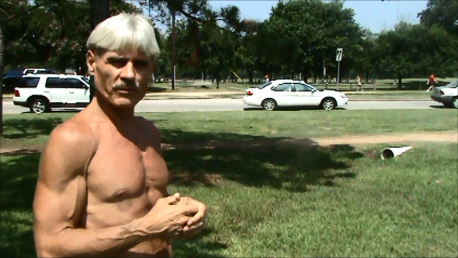|
|
mathematicians think they discovered the cause of cancer
Posted by:
Panchito
()
Date: January 02, 2015 03:39AM If you asked an X topic expert, you would get a different story. Me thinks that a hammer is not the tool for everything
[news.sciencemag.org]
Re: mathematicians think they discovered the cause of cancer
Posted by:
John Rose
()
Date: January 03, 2015 06:39PM <<<Although the randomness of cancer might be frightening, those in the field see a positive side, too. The new framework stresses that “the average cancer patient … is just unlucky,” Clevers says. “It helps cancer patients to know” that the disease is not their fault.>>>
The very last paragraph in the article above is torture. Yea, you were UNLUCKY when you were Born into Bondage or Born into a Belief System and a Way of Life that guaranteed that we would repeat the same Mistakes that our Parents were taught, which includes passing these Bad Habits down to our children long before they have the ability for critical thinking.  Re: mathematicians think they discovered the cause of cancer
Posted by:
Panchito
()
Date: January 03, 2015 08:34PM Lots of disagreements with the study. It shows how a @#$%& argument can be polished with math and sold as a precise numerical discovery. When people don't understand how things work, they use words like "random" and create ideas of hopelessness that benefit the ideologies that create profit from legalized drugs.
PS: It recently was also discussed also here: [nutritionfacts.org] Re: mathematicians think they discovered the cause of cancer
Posted by:
The Sproutarian Man
()
Date: January 05, 2015 11:00PM John Rose Wrote:
------------------------------------------------------- > The very last paragraph in the article above is > torture. Completely agreed, but what else would you expect from maths people who think they know about cancer. Bad luck??? Looking after your DNA would be a good start. www.thesproutarian.com Re: mathematicians think they discovered the cause of cancer
Posted by:
arugula
()
Date: January 07, 2015 05:11AM I think the headlines are twisting the original paper to get more clicks.
They only showed the likelihood of a site being affected based on the doubling time of that site. It has nothing to do with one's genetic baseline. Some people inherit defective DNA that is already carcinogenic while they are still in the womb. These people die in childhood typically. Still, most people can change their lifestyles to slow down the progression. They might get it later rather than sooner. We all pretty much have some cancerous cells in our body. Lifestyle can sometimes mean that the tumor never develops a blood supply, never metastasizes. But more often it just slows down the process. I begin to think that there is a profit motive behind every headline suggesting that genetics is the most important thing. That is true for only a minority of people. For most people diet can make an enormous difference. Re: mathematicians think they discovered the cause of cancer
Posted by:
Adisesh
()
Date: January 13, 2015 02:42AM Human unrequited jealousy is the non-obvious factor mathematics is blind to. That is, some among our midst seem to take the liberty to cause inferiority in fellow being. That subset of Nazi that experimented on helpless people are prime example.
We as a society live with laws that allow such people to cause suffering with no accountability: - Example 1, is there a law in majority of countries to protect an individual subject to coordinated harassment by a group of individuals? No. - Example 2, are there laws to detect use of improvised electronic devices that are used to destabilize a being's health? No. Almost 11 years of my search to find a professional in law or medicine has yet to yield a compelling answer to above questions. I am almost certain that a good percentage of cancer and a number of other afflictions will reduce if we get a "Yes" to the above questions. Sorry, only registered users may post in this forum.
|
|


